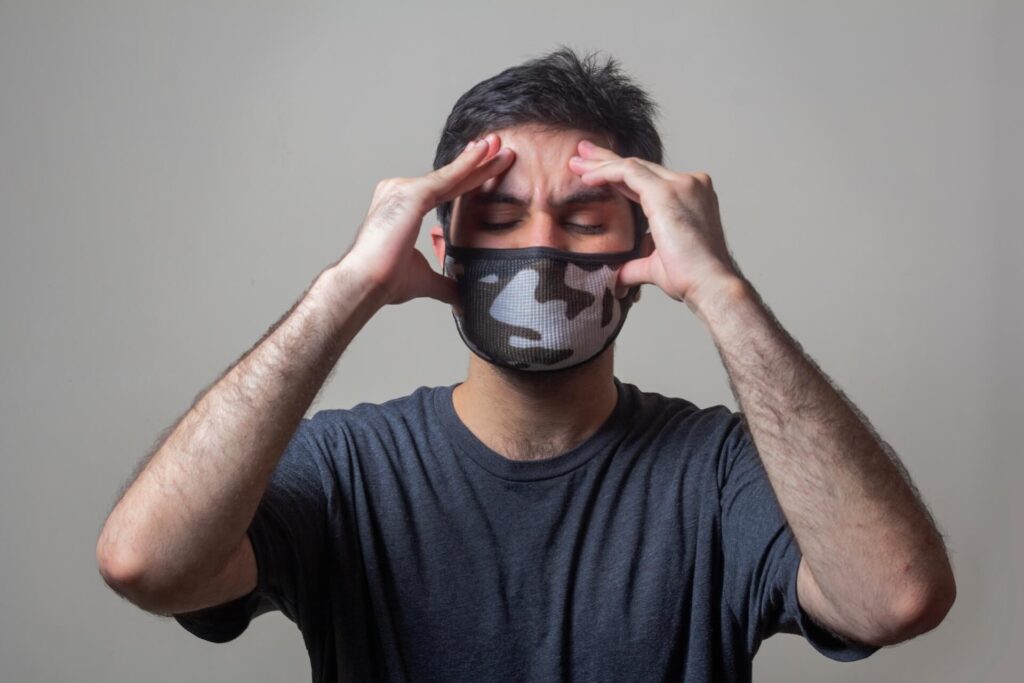If you stop taking testosterone, low testosterone symptoms will reappear, creating increased health risks especially when done abruptly. Side effects of stopping testosterone therapy include loss of muscle mass, increased fatigue, decreased libido, and much more.
These side effects could lead to complications in your physical and mental health, so stopping treatment should always be supervised by a licensed medical professional.
In this article, I’ll review what happens when you stop taking taking taking testosterone, and how to correctly come off TRT to minimize side effects.
Should You Stop Testosterone Replacement Therapy?

You should stop TRT when you no longer need the benefits, you achieved your treatment goals, or if your health requires a stop in treatment.
It’s always important to remember why you started TRT in the first place. From our experience at Evolve Wellness And Health in Denver, most patients want to improve their overall health and one of the simplest ways is through testosterone replacement therapy.
If one of our patients wants to stop testosterone treatments it usually involves factors like finances, logistics of continuing treatment, or because their health requires them to stop treatment.
Achieved Treatment Goals With TRT
You may have started TRT to address specific symptoms or to improve specific health markers. High-performance athletes, for example, may need TRT to help them with their sports goals.
Testosterone drops for athletes for many reasons from intense training to restrictive diets. TRT helps by filling in the gaps so the body recovers properly to continue sports training.
Maybe your libido has changed over recent years and testosterone therapy helped improve your sexual performance. Now, you want to see if the treatment is still even necessary for this one health marker.
Stopping TRT Due To Side Effects
Every drug and medical treatment comes with its fair share of side effects and TRT is no different. You may experience acne, mood swings, or sleep disruption that may be too intense for your lifestyle.
This is totally understandable and most people start TRT to improve their way of life. For some, TRT may be doing the opposite and an alternative treatment maybe required to improve low testosterone levels.
Stopping TRT For Health Concerns
Certain medical conditions may require you to stop TRT. For example, if you develop conditions that could be exacerbated by TRT, such as prostate issues or cardiovascular risks, your doctor might recommend discontinuing or adjusting the treatment.
This is why TRT should always be under the supervision of a medical professional. The treatment may worsen other existing or developing health conditions and medical professionals can help asses when your health conditions worsen.
Desire to Return to Natural Production
Despite the many ways TRT is administered, you may want to explore the possibility of natural testosterone production recovery after TRT. After some time on testosterone therapy, you may want to see the possibilities of returning to natural production. Although this may take time and will not work for everyone, it’s worth a conversation and understanding of the process.
Symptoms Of Stopping TRT

Understanding the risks associated with stopping testosterone replacement therapy abruptly is essential. If you suddenly stop your testosterone replacement therapy, you will likely go through a tough withdrawal process. Low levels of testosterone can cause unpleasant symptoms, including:
1. Hormone Imbalance: Abruptly stopping TRT can disrupt the body’s hormone balance. The body might take time to adjust its natural testosterone production, leading to hormonal imbalances and fluctuations that can affect mood, energy levels, and overall well-being.
2. Mood Changes: Hormonal fluctuations can lead to mood swings, irritability, and even feelings of depression or anxiety.
3. Loss of Muscle Mass and Strength: Testosterone plays a role in maintaining muscle mass and strength. Stopping TRT without a gradual approach might lead to a loss of gains made during the therapy period.
4. Increased Fatigue: The sudden drop in testosterone levels can lead to increased fatigue and reduced energy levels.
5. Sexual Function: Erectile dysfunction and reduced libido, which TRT often helps address, might return if TRT is stopped abruptly.
6. Bone Health: Testosterone is important for maintaining bone density. Abrupt cessation of TRT could potentially impact bone health.
7. Cognitive Changes: Some men might experience changes in cognitive function, such as decreased concentration or memory issues.
8. Cardiovascular Effects: Testosterone can have an impact on cardiovascular health. Abruptly stopping TRT might lead to changes in blood pressure, cholesterol levels, and other cardiovascular markers.
9. Hair Loss: In some cases, stopping TRT might result in hair loss or thinning hair.
10. Sleep Disruption: Hormonal changes could affect sleep patterns, leading to difficulty falling asleep or staying asleep.
11. Potential Rebound Effect: In some cases, abrupt discontinuation of TRT might lead to a temporary overcompensation in the body’s production of hormones, resulting in a “rebound effect” where the body produces more hormones than usual, followed by a subsequent crash in levels.
How To Stop Taking Testosterone Replacement Therapy

If you receive testosterone replacement therapy and want to stop, work closely with your doctor to avoid complications or adverse reactions.
If you’re considering coming off TRT, consult your local physician, or ask us at Evolve Wellness And Health about the best methods.
Properly discontinuing testosterone replacement therapy is an important process that should be carefully managed in collaboration with a qualified healthcare provider. Abruptly stopping TRT can lead to hormonal imbalances and a range of side effects.
Your healthcare provider can guide you through a gradual tapering process to help your body adjust to the changes more smoothly.
This approach can help mitigate some of the potential side effects associated with abrupt cessation. Always prioritize open communication with your healthcare provider and follow their guidance to ensure your health and well-being throughout the process.
In some cases, testosterone withdrawal may be severe enough to require medical intervention or hospitalization. Some people need to continue testosterone therapy to manage serious side effects.

Here are some steps to consider when stopping TRT:
1. Consult Your Healthcare Provider: Before making any decisions about stopping TRT, consult your healthcare provider who has been overseeing your treatment. They have the necessary knowledge of your medical history, current health status, and treatment plan to guide you through the process safely.
2. Discuss Reasons: Have an open and honest conversation with your healthcare provider about your reasons for wanting to stop TRT. They can help you evaluate the potential risks and benefits based on your individual situation.
3. Gradual Tapering: Gradual tapering involves reducing the dosage of testosterone over a period of time, allowing your body to adjust more smoothly to the changes. Your healthcare provider will determine the appropriate tapering schedule based on your specific situation.
4. Monitor Hormone Levels: Throughout the tapering process, your healthcare provider will monitor your hormone levels through blood tests. This helps ensure that your body’s natural testosterone production resumes and that any potential imbalances are detected and managed.
5. Manage Symptoms: If you experience symptoms as you taper off TRT, such as mood changes, fatigue, or a return of the symptoms that prompted your TRT treatment in the first place, communicate these with your healthcare provider. They can provide strategies to manage these symptoms and help you through the process.
6. Support Lifestyle Factors: Focus on maintaining a healthy lifestyle during and after stopping TRT. Regular exercise, a balanced diet, adequate sleep, stress management, and avoiding alcohol or recreational drugs can support your overall well-being and natural testosterone production.
7. Consider Alternative Treatments: If you are stopping TRT due to concerns or side effects, discuss alternative treatment options with your healthcare provider. They can help you explore options that might better suit your needs and goals.
8. Regular Follow-Ups: Continue to schedule regular follow-up appointments with your healthcare provider after stopping TRT. This allows for ongoing monitoring of your hormone levels, health status, and any lingering effects.
9. Patience: It might take time for your body’s natural testosterone production to fully recover after stopping TRT. Be patient and allow your body to adjust at its own pace.
10. Open Communication: Maintain open and honest communication with your healthcare provider throughout the process. Share any concerns, changes in symptoms, or questions you have.
Conclusion: What Happens If You Stop Taking Testosterone?
Remember that every individual’s experience with stopping TRT can be different. Your healthcare provider’s guidance is crucial in ensuring a safe and smooth transition.
Self-tapering or stopping TRT without medical supervision is not recommended, as it can lead to unpredictable effects and potential health risks. Always prioritize your health and well-being by working closely with your healthcare provider when making decisions about discontinuing TRT.


